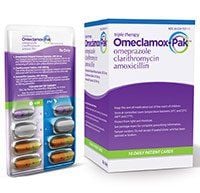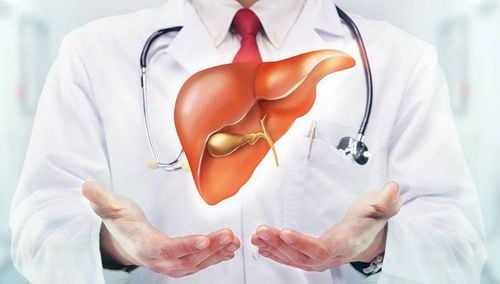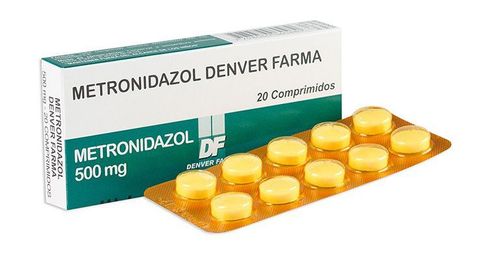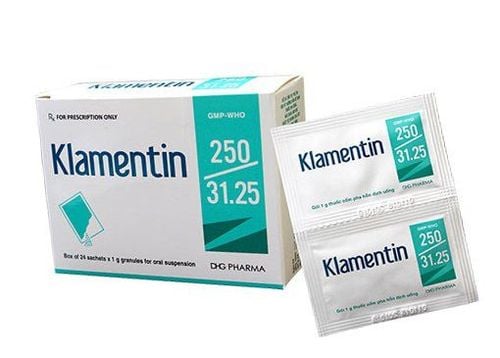This is an automatically translated article.
This article is professionally consulted by Master, Resident Doctor Dang Thi Ngoan - Pediatrician - Neonatologist - Department of Pediatrics - Neonatology - Vinmec Ha Long International Hospital.Many parents have a habit of chewing rice and water for their children because they think that children cannot chew on their own. However, pathogenic microorganisms in saliva can enter food and infect children, causing gastrointestinal and respiratory diseases.
Adults chew food until the food is crushed, then feed it to the child, this way of chewing rice still has some families feeding their children this way, it seems that this way helps children eat and digest more food. In fact, feeding children in this way has harmed them, allowing disease-causing microorganisms in the saliva of the chewer to be transmitted to the child. Especially dangerous for children with weak resistance, immunodeficiency diseases.
Some common diseases that can be transmitted when chewing rice for children include:
1. Hepatitis
Of the viruses that cause hepatitis, hepatitis A and E viruses can be spread through the gastrointestinal tract. Hepatitis A virus exists in the saliva and urine of an infected person, so when chewing rice and food for children, the saliva of an infected person can be transmitted to the child.
When sick, children have symptoms such as jaundice, yellow eyes, fever, fatigue, loss of appetite, digestive disorders, dark urine, discolored stools, accompanied by body itching. The hepatitis A virus can be contagious, but most symptoms are mild and transient.

2. Amoebic dysentery
Amoebic dysentery is a parasite of the entamoeba family, transmitted by oral faeces, cysts of amoebic dysentery outside the body in feces is a contagious form of the disease, cysts are able to withstand unfavorable conditions in the body. long time.
Cysts can exist in the fingernails of the infected person, when the infected person chews and feeds with their hands, it can cause illness to the child.
Manifestations of amoebic dysentery include: May or may not have fever, abdominal pain, straining, frequent bowel movements with mucus and blood. May cause amoebic liver abscess (patients with liver pain, fever, jaundice).
3. Meningococcal disease caused by meningococcal bacteria
Meningococcal bacteria live in the nose and throat of people. When chewing rice for children, bacteria inadvertently spread through saliva to the child.
Meningococcal bacteria after entering the child's body can cause diseases in many organs such as respiratory tract inflammation, meningitis...
Meningococcal disease is a dangerous disease, occurring come on suddenly with symptoms of fever, severe headache, nausea and vomiting, stiff neck, often with stellate purpura or possibly vesicles. The patient is often lethargic or comatose. There are cases of sudden fatigue, hemorrhagic plaques and shock. Today, if detected early and treated aggressively, the mortality rate is from 5% to 15%.
4. Helicobacter pylori infection
Helicobacter pylori is the main cause of acute and chronic peptic ulcer disease and has a high risk of developing gastric cancer, this bacteria is capable of being transmitted through the gastrointestinal tract (oral-- mouth), when a healthy person has direct oral contact with the saliva of a carrier of HP.
Children infected with bacteria can get peptic ulcer disease, causing symptoms such as: Pain above the navel, pain can spread to the back and related to diet, weather; accompanied by digestive disorders (nausea, vomiting, loss of appetite, belching, heartburn...); fatigue...
The disease can cause complications such as: Gastroduodenal perforation, gastrointestinal bleeding, chronic anemia, pyloric stenosis, increased risk of stomach cancer.

5. Mononucleosis
This disease, also known as infectious mononucleosis, is caused mainly by the Epstein-Barr virus (EBV), this virus is localized in the oropharynx of humans and can be spread through contact with saliva.
When infected with the virus, the disease will incubate for about 4-6 weeks, then appear symptoms similar to flu such as: fever, fatigue, loss of appetite, headache, body aches, sore throat, swollen lymph nodes. However, there are also cases where there are no obvious symptoms.
Mononucleosis is usually not dangerous but can also cause some complications such as hepatitis, damage to the central nervous system... especially for children with natural or acquired immunodeficiency.
In addition, Epstein-Barr virus (EBV) is also associated with some specific diseases, such as Hodgkin lymphoma, Burkitt lymphoma, gastric cancer, nasopharyngeal carcinoma. There is evidence that EBV infection is associated with an increased risk of several autoimmune diseases, such as dermatitis, systemic lupus erythematosus, rheumatoid arthritis, and multiple sclerosis. It is estimated that about 200,000 cases of cancer each year are attributed to EBV.
Chewing rice for children is a bad habit, harmful to children's health, unknowingly infecting children with dangerous disease-causing microorganisms. Therefore, it is not recommended to chew food for children, should prepare foods suitable for the child's age, making it easier for children to eat and absorb nutrients.
Doctor Dang Thi Ngoan used to be a lecturer in the Department of Pediatrics - Hai Phong University of Medicine and Pharmacy. Having been granted certificates in Pediatrics at home and abroad such as: Westmead Hospital, Australia; Hai Phong Medical University. Currently, Doctor Ngoan is a Pediatrician - Neonatologist at the Neonatal Department of Vinmec Ha Long International Hospital
Please dial HOTLINE for more information or register for an appointment HERE. Download MyVinmec app to make appointments faster and to manage your bookings easily.














